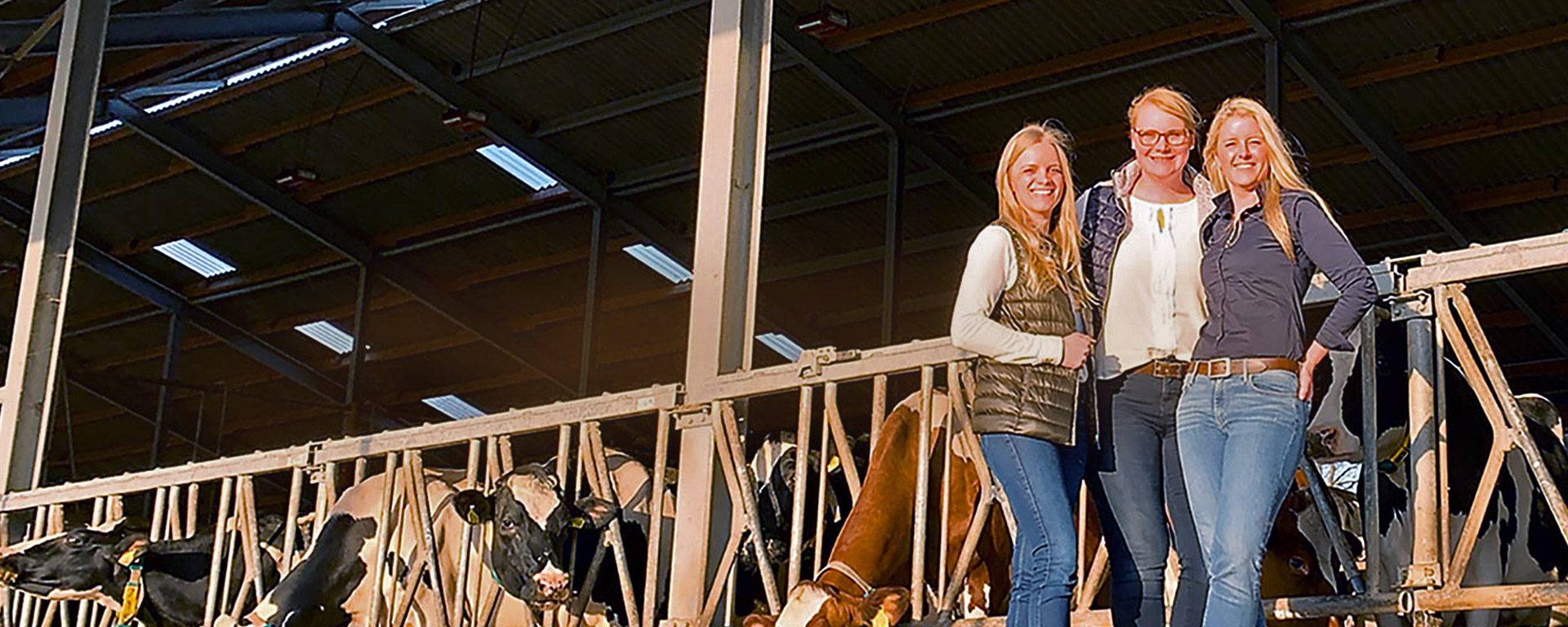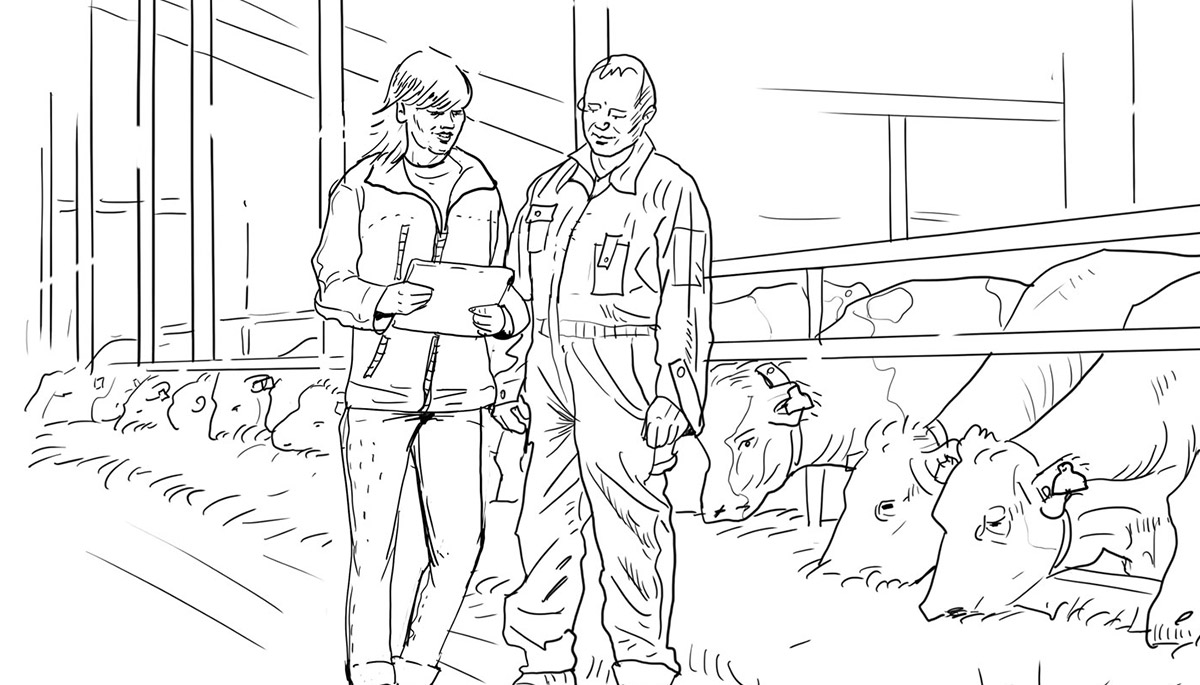Agricultural advice, powered by women


In most people’s minds, farming is still a man’s profession, even though almost every agricultural operation involves women’s work too. However, there are plenty of women working for DMK’s advice service for dairy farmers!
Meet Julia Ridder (regional manager and adviser for North Rhine Westphalia, southern Lower Saxony), Kerstin Grabarse (regional manager, Thuringia, Saxony Anhalt, Hesse), Wiebke Lina Schulte and Judith Wannagat (both technical advisers for North Rhine Westphalia, southern Lower Saxony). These four experts are on hand to answer farmers’ questions, day in, day out, and have plenty of expertise on offer.
All members of the service – men and women alike – are the interface between farmers and the dairy. “We are the face of DMK, if you like, and the first point of contact for all questions, whether it’s because the cell count and bacteria levels are suddenly suboptimal, or there are problems with Milkmaster entries or questions about what’s happening in the market right now,“ says Julia Ridder.
Wiebke Lina Schulte says, “I enjoy conveying to farmers that despite the size of DMK, there is someone here who has time for their questions, as members of the cooperative.“ She finds it particularly motivating when she is able to really help farmers, she says. As a technical adviser, she supports some 520 farms and likes that her dayto-day work combines deskwork and fieldwork, and that it’s practical. That variety makes it difficult to plan her working days in advance, as something unexpected always comes up, and she says it is important to be well-organized and flexible.
Kerstin Grabarse says, “for me personally, it is important that our work with farmers is based on mutual trust. I have a really good relationship with most of the members I look after and that helps, particularly during a crisis. It means we can have constructive discussions and can clear up any misunderstandings or confusion.“
Anyone interested in working for the agricultural field service should bear in mind that being the dairy’s first point of contact, means hearing farmers’ criticisms too. The satisfaction lies in supporting farmers and helping them to solve problems, all four employees agree.
“I am constantly learning through these exchanges and I have the greatest respect for the way our members handle challenges when there’s a crisis, and are motivated to keep going,“ says Judith Wannagat.
“For me personally, it is important that our work with farmers is based on mutual trust.
Kerstin Grabarse
The advisers have differing views as to whether it makes a difference if the person visiting farms as a consultant is a man or a woman. Usually it doesn’t matter, but there have been occasions when farmers were skeptical. Wiebke Lina Schulte says, “I think nowadays in agriculture, it is normal for a woman to be providing advice. You can see that in the feed trade too. It should be widely accepted” Julia Ridder agrees. “Whether it’s a man or a woman, we are the first point of contact for our member farms for a whole range of situations. We sense farmers’ gratitude for our support, along with their unfiltered displeasure when it comes to issues such as the milk price or DMK’s performance. It makes no difference whether it’s ’Julia or Julian’ who shows up at the farm.“


• Director: Achim Stein
• 6 Regional managers
• 11 Technical advisers
• Contact for agricultural members for all questions concerning milk production, milk quality, milk delivery and other questions about membership.